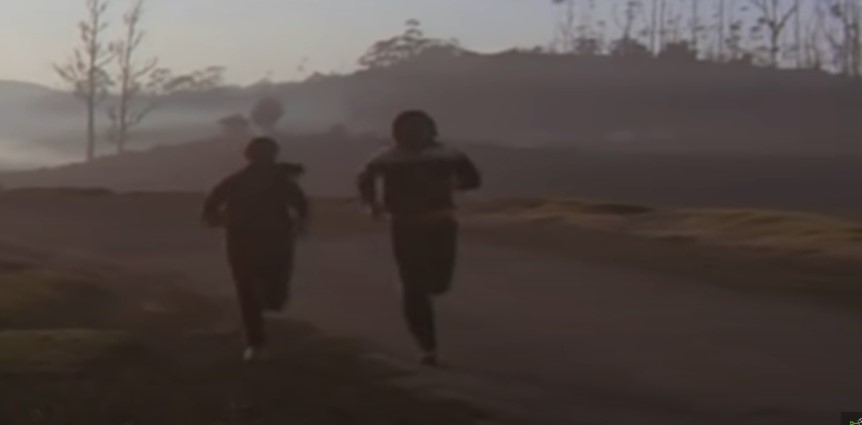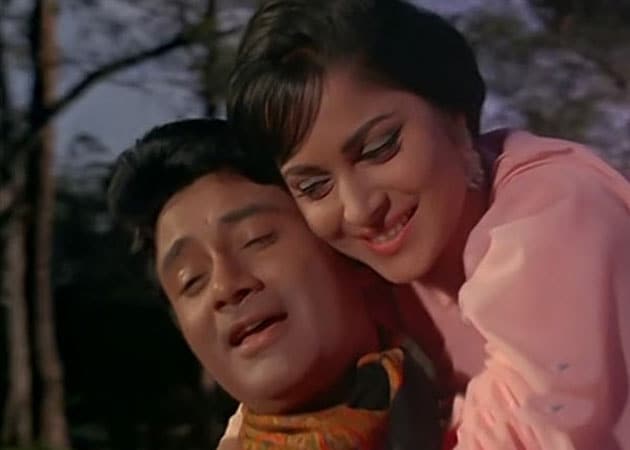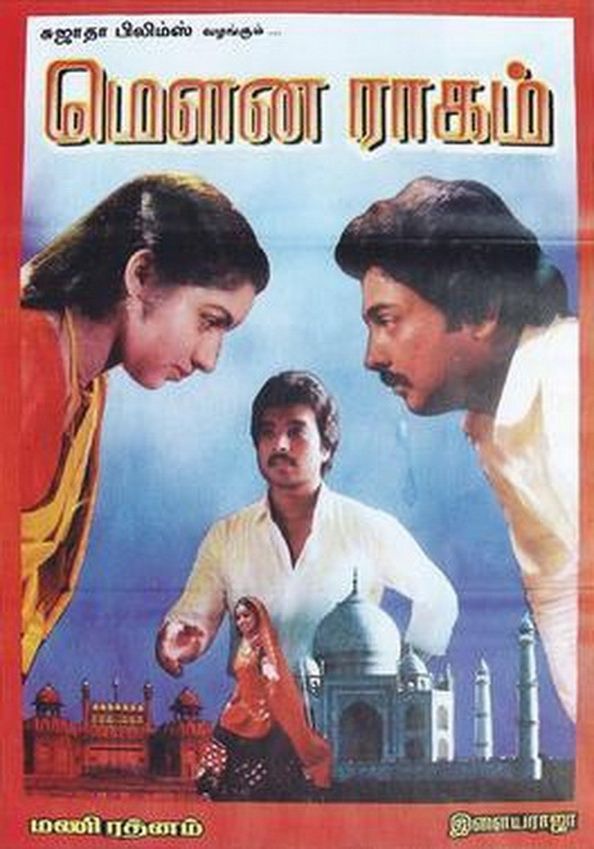Like any work of serious art, good cinema also ages like fine wine. By that measure, Mahendran’s Nenjathai Killathe (1981) could be nothing but Pinot Noir from Burgundy. When the Ground Zero Post had put out a review of Mouna Raagam (1986) last week in the Flashback section, a reader had pointed out that the 80’s classic was a replica of Nenjathai Killathe and suggested this this reviewer watch the film again.
For most 70’s and 80’s kids, Nenjathai Killathe is about misty margazhi mornings, mellifluous Illayaraja music and the tapping of shoes. Maestro Illayarajaa’s enchanting number Paruvame Puthiya Paadal Paadu is likely to be in the top 10 list of any music lover from TN.
But, a repeat watch of NK after several decades revealed a movie that is so much more than what it is made out to be.
In the opening scenes of the film, a young and vivacious Viji, played by Suhasini Maniratam, puts on her sneakers and begins to run. A few minutes later, she is again seen running with her friend-turned-lover Ram, played by Mohan, when the tapping of shoes lends itself to the immortal musical magic of Paruvame. In a way, the entire movie is about running away — all the lead characters are running from their present lives – tapping their shoes all the way.
Let’s get done with the plot first. Viji lives with her elder brother Chandrasekhar (played by Sarath Babu) and sister-in-law Mala (played by Shanti Williams). The opening scene of the movie portrays an angry and repulsive Mala abusing her husband while he is still in bed. Chandrasekhar suffers quietly and does all he can to protect his sister from Mala’s torture. Viji who cannot tolerate her sister-in-law stays out of home most of the time just to be away from her. During her morning jogs, Viji meets Ram, an automobile mechanic and the two become good friends.
Apart from the engaging screenplay and poignant dialogues, Raja’s endearing music carries the film through its complexity in the most palatable manner. The rendition of the song Uravenum Puthiyavaanil accompanied by mesmerising visuals framed by cinematographer Ashok Kumar to complement the vision of the director is a sumptuous treat for the senses.
Chandrasekhar’s friend Pratap (played by Pratap Pothen), a fashion photographer from Kolkata, arrives in Chennai to take up a new job and soon develops a liking for Viji, who also connects well with him. Jealous of Viji’s innocent intimacy with Pratap, Ram proposes marriage to her and claims that his restless mind would stabilize if she was with him. Although initially hesitant, Viji agrees to marry Ram and even manages to convince her brother Chandrasekhar despite the huge disparity in the financial positions of the two families.
When Ram’s parents visit Viji’s home to finalise, Mala who bears a grudge against Viji for her childish pranks, lies to them that her sister-in-law had an abortion out of wedlock. When Ram’s parents confront him about this, he too suspects Viji and questions her, which leads to their break-up.
Even before Viji could get over the breakup, she is forced into a marriage with Pratap upon her brother’s insistence and ties the knot. But she is unable to bond with Pratap and treats him just as badly as Mala treated Chandrasekhar, which she had resented so fiercely. The similarities between Mouna Raagam and Nenjathai Killathe begin here with Pratap suffering silently to the tantrums of his wife Viji, who eventually has a change of heart.
The beauty of the film is that the only frame people still remember from the film is that of Suhasini and Mohan running on dewy morning. And that’s what all characters are upto in the movie – they are on the run. Viji initially runs away from an abusive home towards Ram. When she has issues with Ram, she runs towards Pratap but is unable to forget her past and tries to get away from Pratap too.
Ram is also an expert at running. At first, he tries to escape from his mundane life by rushing into a marriage with Viji out of sheer jealousy. Later, when he hears of Viji’s alleged abortion, runs away from her, and when he finds out that he made a mistake by suspecting her, once again rushes into marrying a differently-abled girl as a punishment for breaking up with Viji as if differently-abled girls are looking for grooms who marry them out of pity.
Chandrasekhar, who is initially portrayed as a silently suffering husband is also an escapist. He has an affair with another woman (shown as a platonic one) which the wife is aware of. It is his way of escaping the reality of his marriage. Pratap and Mala are the only lead characters who refrain from falling prey to the urge of escaping from their present lives.
Apart from the engaging screenplay and poignant dialogues, Raja’s endearing music carries the film through its complexity in the most palatable manner. The rendition of the song Uravenum Puthiyavaanil accompanied by mesmerising visuals framed by cinematographer Ashok Kumar to complement the vision of the director is a sumptuous treat for the senses.
Pratap Pothen’s performance can be rated among his best and Suhasini has aced in her role as Viji. Even the minor characters in the film like Keech (played by Manohar) and the garage owner (played by Venneeradai Moorthy) have well-defined roles in carrying the plot further.
More than forty years after its initial release, Nenjathai Killathe remains the entrancing classic it has always been known to be offering more and more interpretations with passage of time. And, this reviewer thanks the reader for pointing out the film’s similarities with Mouna Raagam that led to this revisit.



